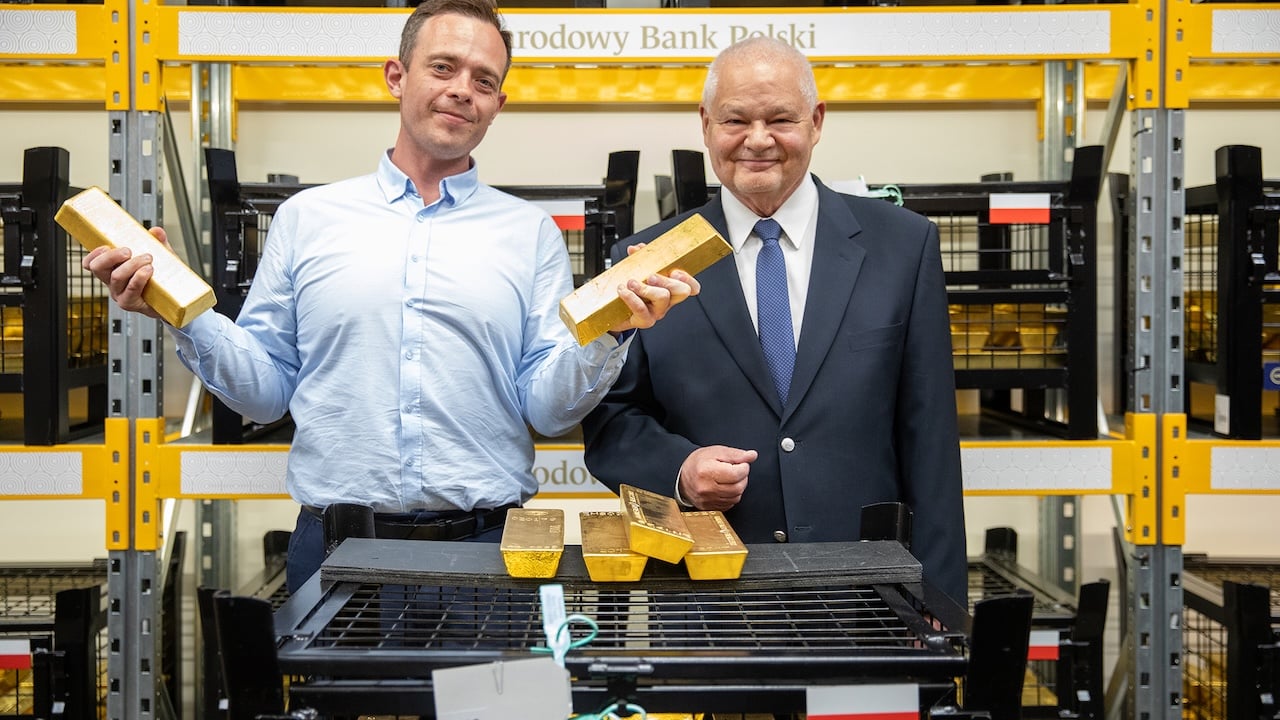(Mike Maharrey, Money Metals News Service) Poland now holds more gold than the European Central Bank.
National Bank of Poland (NBP) governor Adam Glapiński noted this fact during a recent press conference, saying he views gold as a shield against global instability and a cornerstone of economic sovereignty.
“This shows the stability, abundance, and solvency of the Polish economy.”
Poland officially holds 509.3 tonnes of gold, making up about 22 percent of the country’s total reserves.
Official ECB gold reserves stand at 506.5 tonnes.
Over the last several years, Poland has aggressively increased its gold reserves. In 1996, the NBP only held 14 tonnes of gold.
The National Bank of Poland was the biggest central bank gold buyer in 2024 and stayed on top with continued purchases through the first three months of 2025, adding another 49 tonnes.
Last year, National Bank of Poland Governor Adam Glapiński indicated the central bank planned to increase its gold holdings to 20 percent of its reserves.
“This makes Poland a more credible country, we have a better standing in all ratings, we are a very serious partner, and we will continue to buy gold.”
Glapiński said the country’s gold is worth 60 billion zloty (€14.12 billion) more than what the bank paid for it, and the amount continues to grow, but he emphasized these are paper gains and the Polish central bank has no plans to sell.
Why so much gold?
According to NotesFromPoland.com, Glapiński said that it is not directly linked to any national economic policies, is a safe haven during crises, and retains its real value over the long term.
“It is a symbol of stability that enhances our credibility in the eyes of investors and foreign partners.”
According to the NBP’s website, gold is not a liability and carries no counterparty risk. Furthermore, its physical characteristics ensure durability and near indestructibility.
When he announced the initial plan to expand its gold reserves in 2021, Glapiński said holding gold was a matter of financial security and stability.
“Gold will retain its value even when someone cuts off the power to the global financial system, destroying traditional assets based on electronic accounting records. Of course, we do not assume that this will happen. But as the saying goes – forewarned is always insured.
“And the central bank is required to be prepared for even the most unfavorable circumstances. That is why we see a special place for gold in our foreign exchange management process.”
Glapiński also pointed out that “Gold is free from credit risk and cannot be devalued by any country’s economic policy. Besides, it is extremely durable, virtually indestructible.”
Poland’s affinity for gold comes as no surprise, given its history. The county serves as a crossroads between Eastern and Western Europe, and it has seen more than its fair share of war and strife. Memories of German occupation during World War II and Russian domination in the years that followed linger in the Polish psyche.
Many families remember stories about gold coins and jewelry, meaning the difference between life and death during World War II. It bought food and sometimes an escape.
Photo credit: National Bank of Poland
Mike Maharrey is a journalist and market analyst for Money Metals with over a decade of experience in precious metals. He holds a BS in accounting from the University of Kentucky and a BA in journalism from the University of South Florida.

